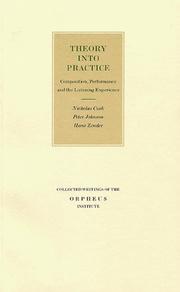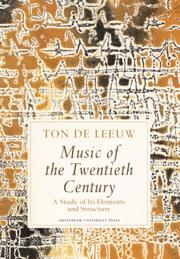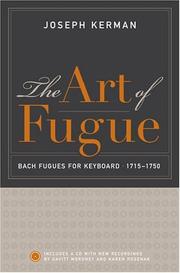| Listing 1 - 10 of 10 |
Sort by
|
Book
Year: 2021 Publisher: Bielefeld : Verlag der Österreichischen Akademie der Wissenschaften,
Abstract | Keywords | Export | Availability | Bookmark
 Loading...
Loading...Choose an application
- Reference Manager
- EndNote
- RefWorks (Direct export to RefWorks)
Erstmals wird in diesem Buch die für Deutschrap oft impulsgebende österreichische Hip-Hop-Musiklandschaft auf Buchlänge ins Zentrum gerückt. Frederik Dörfler-Trummer zeichnet die Karrieren der wichtigsten Vertreter*innen - von Falco über Money Boy bis Raf Camora - nach und analysiert ihre Musik. Dabei werden genredefinierende Charakteristika des Hip-Hop für die Subgenres BoomBap, Gangsta-Rap, Trap und Cloud-Rap herausgearbeitet. Über den Aspekt der Glokalisierung wird zudem das Zusammenspiel von globaler Verbreitung und lokaler Aneignung von Hip-Hop-Musik demonstriert.
Book
Year: 2018 Publisher: Florence : Firenze University Press,
Abstract | Keywords | Export | Availability | Bookmark
 Loading...
Loading...Choose an application
- Reference Manager
- EndNote
- RefWorks (Direct export to RefWorks)
Mare, fiume, ruscello. Acqua e musica nella cultura romantica rilegge la letteratura tedesca tra Sette e Ottocento tematizzandone la figura dell'acqua, seguendo le linee teorico-metodologiche tracciate da Gaston Bachelard nei suoi studi sull'immaginazione materiale, in particolare in L'eau et les rêves del 1942. Il lavoro indaga le affinità elettive tra sostanza liquida, parola poetica e musica nel periodo romantico. La rilettura mette in risalto il grande numero di metafore "liquido-acquatiche" nell'opera liederistica di Franz Schubert, con una particolare attenzione ai cicli Die Schöne Müllerin (1823) e Winterreise (1828). Lo studio viene condotto in prospettiva interdisciplinare che si estende alla lettura e all'ascolto dei Lieder e si situa tra l'analisi letteraria e musicale. Mare, fiume, ruscello. Acqua e musica nella cultura romantica (Sea, river, stream. Water and music in romantic culture) re-reads German literature between the 18th and 19th centuries, focusing on the figure of water, following the theoretical-methodological lines traced by Gaston Bachelard in his studies on material imagination, especially in his 1942 work L'eau et les rêves. The work investigates the elective affinities between liquid substance, poetic word and music in the romantic period. The rereading highlights the large number of "liquid-aquatic" metaphors in Franz Schubert's lieder works, with particular attention to the cycles Die Schöne Müllerin (1823) and Winterreise (1828). The study is conducted in an interdisciplinary perspective that extends, between literary and musical analysis, to the reading and listening of the Lieder.
Periodical
Abstract | Keywords | Export | Availability | Bookmark
 Loading...
Loading...Choose an application
- Reference Manager
- EndNote
- RefWorks (Direct export to RefWorks)
Music --- Musical analysis --- Ethnomusicology --- Folk music
Periodical
Year: 2016 Publisher: [Brasil] : Associação Brasileira de Teoria e Análise Musical,
Abstract | Keywords | Export | Availability | Bookmark
 Loading...
Loading...Choose an application
- Reference Manager
- EndNote
- RefWorks (Direct export to RefWorks)
Music theory --- Musical analysis --- Music --- Brazil.
Book
ISBN: 351513493X Year: 2023 Publisher: Stuttgart, Germany : Franz Steiner Verlag,
Abstract | Keywords | Export | Availability | Bookmark
 Loading...
Loading...Choose an application
- Reference Manager
- EndNote
- RefWorks (Direct export to RefWorks)
"[E]inigen Unterricht bei Haydn genommen, aber nie etwas von ihm gelernt": Ludwig van Beethovens Verhältnis zu Joseph Haydn schien von Beginn an belastet. Entsprechend verstanden die meisten Zeitzeugen, Biographen und Musikhistoriographen des 19. Jahrhunderts Beethoven und Haydn als Oppositionspaar, wobei es je nach ideologischer oder musikpolitischer Position galt, für den einen oder den anderen Partei zu ergreifen. Iris Eggenschwiler zeichnet in ihrer Dissertation die Rezeptionsgeschichte der musikhistorischen Konstellation Beethoven und Haydn nach und unterzieht sie einer umfassenden Neubewertung. Sie untersucht die Voraussetzungen und Hintergründe des kurfürstlichen Beschlusses, den Hofmusiker Beethoven nach Wien zu entsenden, analysiert Beethovens in Wien revidierte Bonner Werke und Neukompositionen bis 1800 und beleuchtet die musikästhetische Debatte um Beethovens "neuen Weg" anhand der dritten Sinfonie "Eroica" und Haydns Londoner Sinfonien. Eine Detailstudie zur C-Dur-Messe op. 86 zeigt schließlich, wie Beethoven versuchte, sich künstlerisch von Haydn zu emanzipieren und sich zugleich, getrieben vom Anspruch auf Nachfolge, in den Kanon klassischer Meister einzuschreiben.
Music --- History and criticism. --- Beethoven, Ludwig van, --- Haydn, Joseph, --- Criticism and interpretation. --- Piano sonata --- Friedrich Schiller --- Piano concerto --- Chamber music --- Enlightened Absolutism --- Musical Analysis --- Immanuel Kant

ISBN: 9061869943 946166432X Year: 1999 Volume: 2 Publisher: Leuven University press
Abstract | Keywords | Export | Availability | Bookmark
 Loading...
Loading...Choose an application
- Reference Manager
- EndNote
- RefWorks (Direct export to RefWorks)
"Theory into Practice. Composition, Performance and the Listening Experience' is the second publication in the series 'Collected Writings of the Orpheus Institute'. The series comprises articles concerning the activities of the Orpheus Institute.The centrale theme of this book is the relationship between the reflections about and the relization of a musical composition. In his paper Words about Music, or Analysis versus Performance, Nicholas Cook states that words and music can never be aligned exactly with one another. He embarks on a quest for models of the relationship between analytical conception and performance that are more challenging than those in general currency.Peter Johnson's article Performance and the Listening Experience: Bach's 'Erbarme dich' shows that a performance is an element within the intentionality of the work itself. He looks for scientific methods capable of proving the artisticity of a performance.The composer Hans Zender, in his A Road Map for Orpheus?, states that a composer must be capable of questioning obvious basic principles (such as equal temperament) and finding creative solutions."
Musique --- Muziek --- Academic collection --- Composition (Music) --- Musical analysis --- Music theory --- Music --- Musical theory --- Theory of music --- Analysis, Musical --- Analytical guides (Music) --- Hermeneutics (Music) --- Music analysis --- Music appreciation --- Composing (Music) --- Music composing --- Music composition --- Musical composition --- Concertante style --- Theory --- Analysis, appreciation --- Analytical guides --- Instruction and study --- Composition --- Musical analysis. --- Music theory. --- musical composition; performance; listening experience; analysis --- Essays --- Muziekfilosofie --- Esthetica --- 20e eeuw --- België
Book
ISBN: 3839441994 3837641996 Year: 2018 Publisher: Bielefeld transcript Verlag
Abstract | Keywords | Export | Availability | Bookmark
 Loading...
Loading...Choose an application
- Reference Manager
- EndNote
- RefWorks (Direct export to RefWorks)
Wie wirklich ist musikalische Praxis und was hat sie mit dem alltäglichen Leben zu tun? Eva-Maria Houben zeigt, dass sich das Musizieren verändert, sobald dessen Sinn nicht in der zweckorientierten Produktion von Arbeitsergebnissen, sondern im Musizieren als Beschäftigung und um des Spielens willen gefunden wird. Musikalische Praxis ist prinzipiell unabgeschlossen. So bleibt das Tun auf Wiederholung ausgerichtet und befreit von Perfektion, Produktivität, Zweckgebundenheit. Sinn wird in der jeweiligen Situation, am spezifischen Ort, im Beziehungsgeschehen selbst erlebt. Musikalische Praxis kann so zur »Lebensform« und dabei eine eigene Wirklichkeit werden. »Houbens Diktion ist mehr behutsam tastend, fragend, erwägend als streng diskursiv. Das ist sympathisch und fordert Lesende zu der Bemühung auf, den Fragen persönlich nachzuspüren.« Ulrich Mahlert, das Orchester, 12 (2018) O-Ton: »Beim Musikmachen werden Kräfte einer neuen Wirklichkeits- und Wirkungserfahrung freigesetzt« - Eva-Maria Houben im Gespräch bei WDR 3 Tonart am 01.06.2018. »Ein sehr lesenswertes Buch, das zum Nach-, Neu- und Querdenken anregt und das für das soziale Miteinander mit und durch Musik mit jeder Denkfaser seiner Autorin einsteht.« Adalbert Grote, Üben und Musizieren, 4 (2018)
Theory of music & musicology --- Corporeality. --- Cultural Studies. --- Culture. --- Metaphor. --- Music Performance. --- Musical Analysis. --- Musicology. --- Performativity. --- Musik; Performativität; Wahrnehmung; Musikalische Praxis; Musikwissenschaft; Musikausführung; Körperlichkeit; Metapher; Musikalische Analyse; Kultur; Kulturwissenschaft; Music; Music Performance; Performativity; Corporeality; Metaphor; Musical Analysis; Culture; Musicology; Cultural Studies

ISBN: 9053567658 9786610959181 9048505429 1280959185 1423746287 9781423746287 9789053567654 9789048505425 9781280959189 6610959188 Year: 2005 Publisher: Amsterdam
Abstract | Keywords | Export | Availability | Bookmark
 Loading...
Loading...Choose an application
- Reference Manager
- EndNote
- RefWorks (Direct export to RefWorks)
Music of the Twentieth Century goes beyond a historical survey with its lucid and impassioned discussion of the elements, structures, compositional principles, and terminologies of twentieth-century music. De Leeuw draws on his experience as a composer, teacher, and music scholar of non-European music traditions, including Indian, Indonesian, and Japanese music, to examine how musical innovations that developed during the twentieth century transformed musical theory, composition, and scholarly thought around the globe.
Music -- 20th century -- History and criticism. --- Musical analysis. --- Twelve-tone system. --- Music --- Twelve-tone system --- Music History & Criticism, General --- Music, Dance, Drama & Film --- History and criticism --- History and criticism. --- Dodecaphonic system --- Twelve-note composition --- Twelve-note system --- Twelve-tone technique --- Serialism (Music)
Book
ISBN: 3631770650 3631797982 3631797974 Year: 2020 Publisher: Bern Peter Lang International Academic Publishing Group
Abstract | Keywords | Export | Availability | Bookmark
 Loading...
Loading...Choose an application
- Reference Manager
- EndNote
- RefWorks (Direct export to RefWorks)
This book gives a critical account of various methods used in music analysis. In the first chapter, a number of current approaches such as semiotics, musical implications, Schenkerian analysis, and generative theory are demonstrated on Mozart’s K. 331 theme. Five essays deal with important concepts in music analysis: ambiguity, formal proportions, and similarity within and between works. A further chapter provides a discussion of probability, kinship, and influence – decisive criteria when judging musical plagiarism. The last essay, studying a piece by Schubert, sifts the prospects of deciphering a composer’s sexual leanings from his music.
Musical analysis. --- Analysis, Musical --- Analytical guides (Music) --- Hermeneutics (Music) --- Music --- Music analysis --- Music theory --- Music appreciation --- Analysis, appreciation --- Analytical guides --- Instruction and study --- Analytical;Analytical methods;Applied;Critical;Edlund;Essays;Golden section;Music;Musical ambiguity;Musical hermeneutics;Musical plagiarism;Musical similarity;Schenkerian analysis;Theory;Variations

ISBN: 0520287630 0520962591 9780520962590 0520243587 9780520243583 9780520287631 Year: 2005 Publisher: Berkeley, CA : University of California Press,
Abstract | Keywords | Export | Availability | Bookmark
 Loading...
Loading...Choose an application
- Reference Manager
- EndNote
- RefWorks (Direct export to RefWorks)
A free ebook version of this title is available through Luminos, University of California Press's new open access publishing program for monographs. Visit www.luminosoa.org to learn more. Fugue for J. S. Bach was a natural language; he wrote fugues in organ toccatas and voluntaries, in masses and motets, in orchestral and chamber music, and even in his sonatas for violin solo. The more intimate fugues he wrote for keyboard are among the greatest, most influential, and best-loved works in all of Western music. They have long been the foundation of the keyboard repertory, played by beginning students and world-famous virtuosi alike. In a series of elegantly written essays, eminent musicologist Joseph Kerman discusses his favorite Bach keyboard fugues-some of them among the best-known fugues and others much less familiar. Kerman skillfully, at times playfully, reveals the inner workings of these pieces, linking the form of the fugues with their many different characters and expressive qualities, and illuminating what makes them particularly beautiful, powerful, and moving. These witty, insightful pieces, addressed to musical amateurs as well as to specialists and students, are beautifully augmented by performances made specially for this volume: Karen Rosenak, piano, playing two preludes and fugues fromTheWell-Tempered Clavier-C Major, book 1; and B Major, book 2--and Davitt Moroney playing the Fughetta in C Major, BWV 952, on clavichord; the Fugue on ";Jesus Christus unser Heiland,"; BWV 689, on organ; and the Fantasy and Fugue in A Minor, BWV 904, on harpsichord.
Fugue. --- MUSIC / Genres & Styles / Classical. --- Canons, fugues, etc. --- Fugues --- Counterpoint --- Musical form --- History and criticism --- Bach, Johann Sebastian, --- Keyboard music (Bach, Johann Sebastian) --- 18th century fugues. --- 18th century music. --- bach. --- classical music. --- clavichord music. --- fugue in c major. --- fugue in c minor. --- fugues. --- harpsichord music. --- history of music. --- intimate fugues. --- keyboard composition. --- keyboard music. --- music appreciation. --- music composition. --- music theory. --- musical analysis. --- musical commentary. --- musical scores. --- musicology. --- organ music. --- organ toccatas. --- piano keyboard. --- studies in classical music. --- technical music analysis. --- the well tempered clavier. --- Fugue --- Music --- General
| Listing 1 - 10 of 10 |
Sort by
|

 Search
Search Feedback
Feedback About UniCat
About UniCat  Help
Help News
News